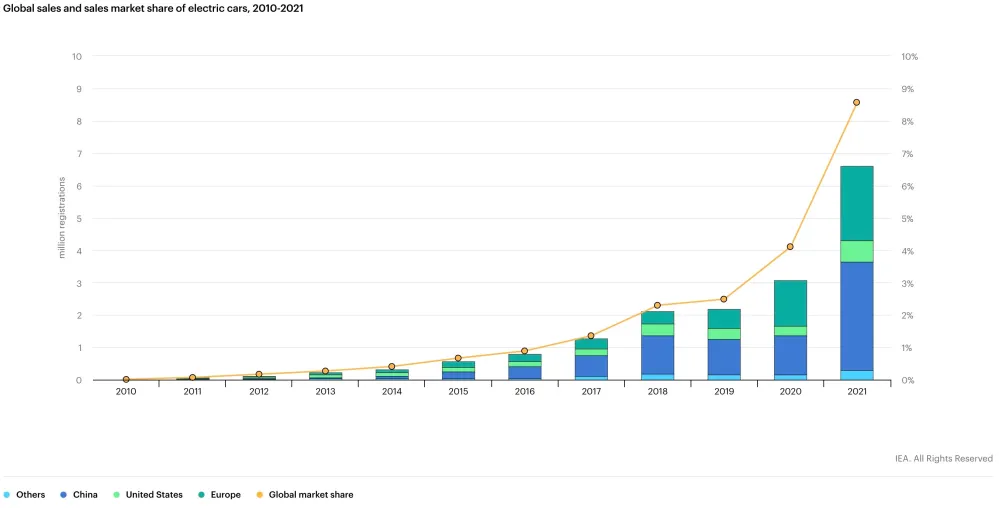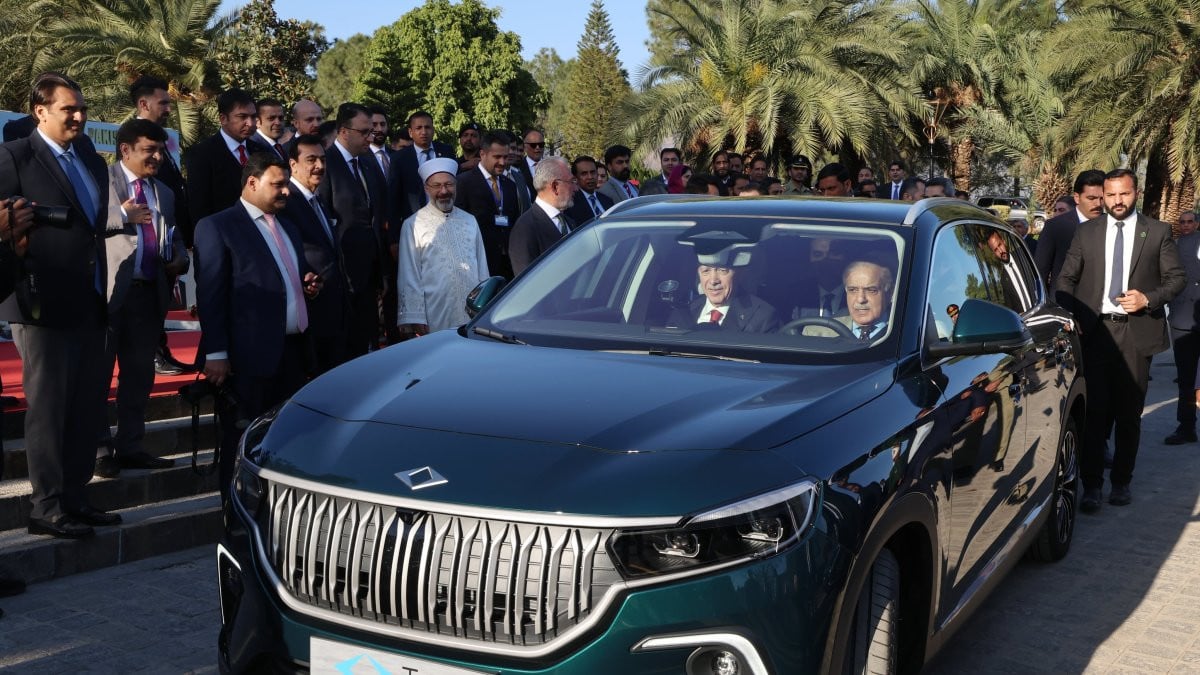1. Introduction: EVs Hit a Major Global Milestone
In 2025, the global electric vehicle (EV) market has officially surpassed a groundbreaking threshold: over 30% of all new car sales worldwide are now electric. This comes on the heels of a record 20 million EVs projected to be sold this year, reinforcing EVs as a dominant force in the clean transportation revolution. This surge marks a critical moment in the broader energy transition away from fossil fuels.
2. Fast‑Rising Sales & Surging Market Share
According to the International Energy Agency, EVs now represent around 25% of global vehicle sales in 2025, with expectations to achieve—or exceed—the 30% mark strategyand.pwc.com+15axios.com+15thedriven.io+15.
S&P Global Mobility anticipates 15.1 million BEV sales, a 30% increase from 2024, translating to 16.7% share of light vehicle sales .
Meanwhile, the first quarter of 2025 saw 4 million EVs sold—a 35% year‑on‑year increase evlife.world+4iea.org+4transportandenergy.com+4.
3. Regional Leaders & Diverse Market Trends
- China remains the powerhouse, accounting for more than half of global EV sales, with 2.5 million EVs in Q1 alone and a projected 14 million EVs for 2025 axios.com+10iea.org+10emobilityplus.com+10.
- Europe sold nearly 900,000 EVs in Q1, pushing its share to approximately 25%, though uneven due to subsidy adjustments .
- North America achieved ~360,000 EV sales in Q1, roughly a 10–16% share of light‑vehicle sales .
- India and Brazil posted remarkable growth rates (40–60%), though starting from a smaller base cleantechnica.com+15iea.org+15theaustralian.com.au+15.
4. Drivers of EV Adoption
- Cost parity: EV prices are declining due to improved battery tech and economies of scale; in regions like China, most EVs are now cheaper than petrol cars emobilityplus.com+2rinnovabili.net+2evlife.world+2.
- Policy support: Incentives, mandates, and regulations—from China’s trade‑in schemes to U.S. tax credits—continue to shape adoption trends .
- Infrastructure expansion: Charging networks are scaling up globally, essential to consumer confidence.
- Falling fleet emissions: Automakers are shifting production strategies toward electrification to meet regulatory and consumer pressures.
5. Challenges & Headwinds
- Policy uncertainty in the U.S.—potential rollback of EV credits and new tariffs could reduce growth apnews.com+1evertiq.com+1.
- Subsidy cliffs in Europe, like France, have hurt sales momentum rinnovabili.net+2evlife.world+2time.com+2.
- Trade barriers may affect EV costs and component supply—tariffs in North America and export restrictions from China are under scrutiny .
6. China’s Dominance & Global Impact
China sold 11 million EVs in 2024, matching the global run of two years earlier, and is now the largest EV producer and exporter with significant influence evertiq.com+15reuters.com+15theaustralian.com.au+15.
Major Chinese automakers—BYD, Geely, SAIC—have overtaken traditional OEMs like Tesla in sales and are driving global export expansion time.com+2reuters.com+2cleantechnica.com+2.
7. Outlook: Toward a 40% EV Market by 2030
The IEA forecasts 40% of global vehicle sales will be electric by 2030—this rapid electrification trajectory is likely to continue axios.com.
EV sales are projected to reach 20 million in 2025, with a base that supports sustained growth .
8. Environmental & Economic Benefits
- EVs currently offset an estimated 1.3 million barrels of oil per day in 2024 axios.com.
- Domestic EV manufacturing boosts employment, technological innovation, and clean energy ecosystems.
- Reductions in urban air pollution and greenhouse gas emissions present long-term public health and climate advantages.
9. Conclusion: EVs Redefining Mobility
The milestone of over 30% global EV sales in 2025 validates the sector’s ongoing shift from niche to mainstream.
Despite policy and market challenges, indicators—plummeting costs, rapid sales, and infrastructure investments—signal a transformative era in global transport. By 2030, this momentum could see EVs as nearly half of all new car sales, reshaping the automotive industry and climate outcomes.






